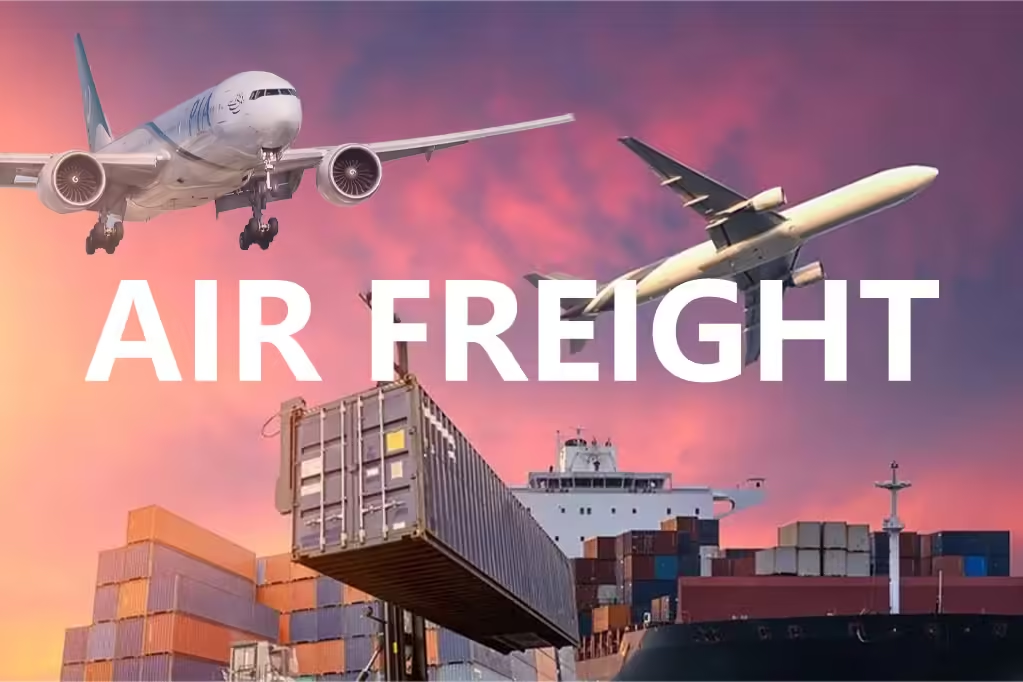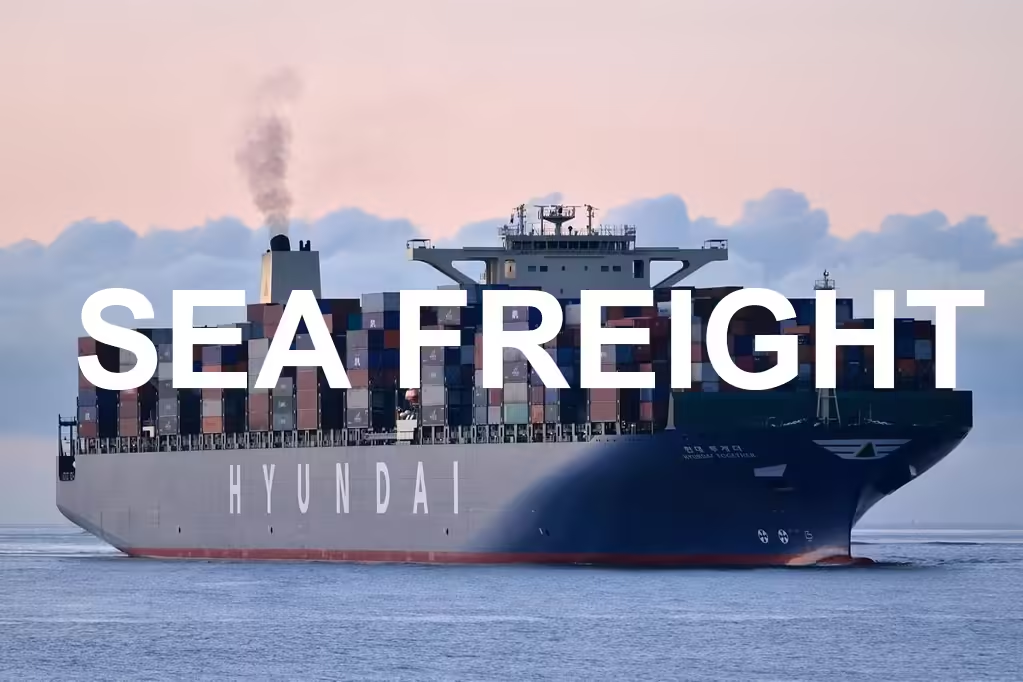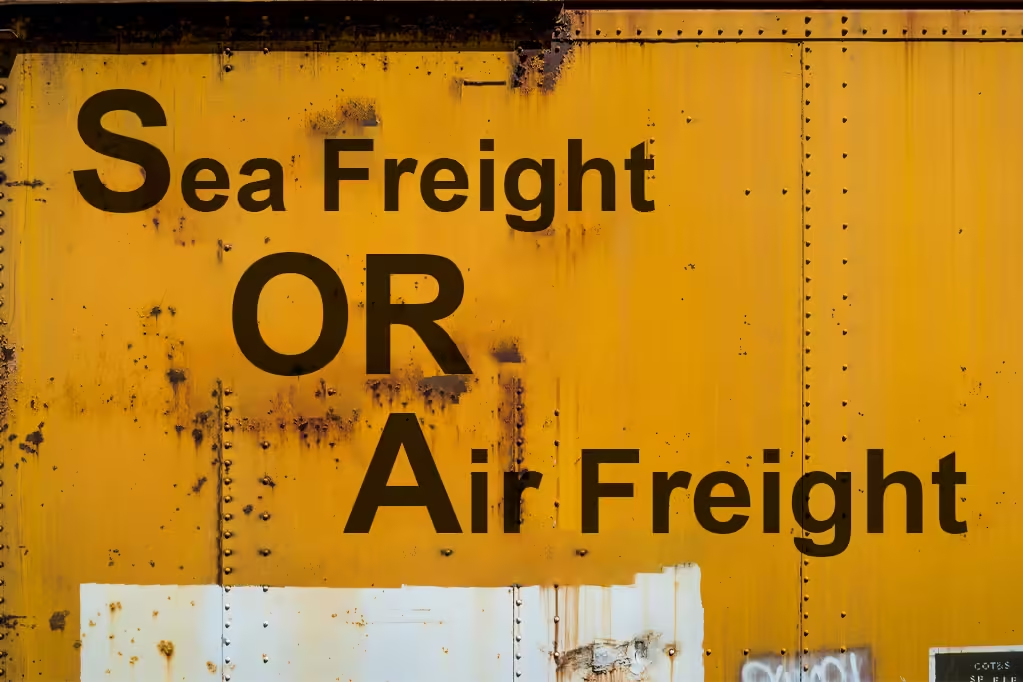Air Freight vs Sea Freight from China to Malaysia
Both air freight and sea freight are popular methods for transporting goods between China and Malaysia, each offering unique advantages and considerations.This guide aims to provide a comprehensive overview of air and sea freight from China to Malaysia, equipping businesses and Customers with detailed insights to make informed decisions based on their specific needs and logistics requirements.

Air freight is a preferred choice for businesses that prioritize speed and reliability. It is particularly suitable for urgent shipments, high-value goods, and perishable items. Here are the key aspects of air freight from China to Malaysia:
Speed
Air freight provides the fastest transit times, typically taking just 3 to 4 days from China to Malaysia, making it an ideal choice for urgent cargoes that require rapid delivery.
Capacity
While aircraft have limited capacity compared to sea freight vessels, they can still handle a wide variety of goods, including electronics, pharmaceuticals, and machinery parts.
Tracking
Air carriers offer real-time tracking services, enabling shippers to monitor their shipments’ status continuously from origin to destination, ensuring transparency and control throughout the journey.

Sea freight is a more cost-effective solution for transporting bulk shipments and goods that are not time-sensitive, making it an ideal choice for businesses looking to minimize logistics costs while still ensuring reliable delivery.Here are the key aspects of sea freight from China to Malaysia:
Cost-Effectiveness
Sea freight is typically much cheaper than air freight, making it a highly cost-effective option for transporting large volumes of goods, especially when time is not a critical factor in the shipment process.
Capacity
Sea freight can handle very large volumes of cargo, including oversized and heavy items, making it an ideal choice for shipping large machinery, vehicles, and other bulky goods that may not be feasible or economical to transport by air or other means.
Transit Time
Marine freight takes significantly longer than air freight, ranging from several weeks to a month or more. Typically, shipments from China to Malaysia take around 15 to 18 days, depending on the specific ports of origin and destination.
How to choose between sea freight and air freight?

When choosing between air and sea freight for shipments from China to Malaysia, consider the following factors:
Time Sensitivity
If the shipment is time-sensitive, air freight is the preferred option, as it offers faster transit times, typically just 3 to 4 days from China to Malaysia, making it ideal for urgent deliveries.
Cost
For cost-sensitive shipments, sea freight is more economical, especially for bulk goods, as it offers lower rates per unit of volume, making it a cost-effective choice for larger quantities of non-time-critical items.
Volume and Weight
Large volumes or heavy items are typically transported by sea freight, which is well-suited for handling bulk cargo and oversized shipments due to its capacity and cost-effectiveness.
Customs Regulations
Be aware of Malaysian customs regulations and requirements for imports, including any specific documentation, duties, taxes, and restrictions that may apply to your goods, ensuring compliance and smooth clearance.
Insurans
Consider obtaining insurance coverage for your shipment, especially for high-value or fragile goods, to protect against potential losses or damages during transit.
Case Study: Choosing Between Air and Sea Freight
Let’s consider a hypothetical scenario where a Chinese manufacturer needs to deliver a batch of consumer electronics to a retailer in Malaysia. The shipment consists of 10,000 units weighing a total of 20 metric tons. The goods are scheduled to be released in a month, and the retailer requires them to arrive at least one week before the launch date.
Given the urgency and the relatively small volume, air freight would be the most appropriate choice. The manufacturer can expect a transit time of 3-5 days, ensuring the goods reach Malaysia well before the deadline. Although air freight is more expensive, the cost is justified by the need to meet the launch date.
Both air freight and sea freight are viable options for transporting goods from China to Malaysia, with each method catering to different needs and priorities. Choosing the right mode of transport involves balancing factors such as cost, transit time, and the nature of the goods being shipped. By carefully considering these factors, businesses can optimize their logistics strategy and ensure the smooth delivery of their goods.

